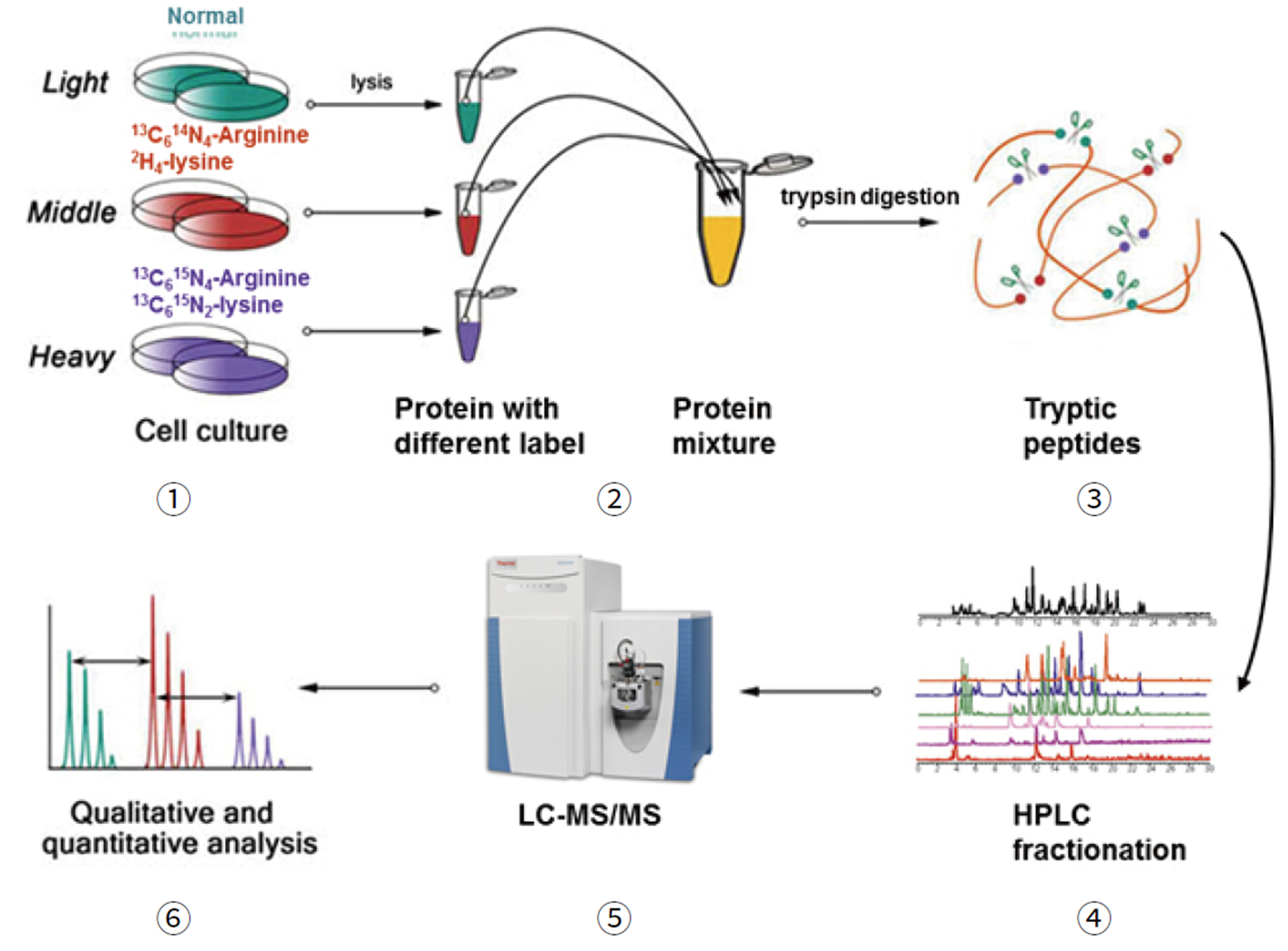Interested in our services
Contact our experts to provide further information



SILAC (Stable Isotope Labeling with Amino acids in Cell culture) is a stable isotope labeling technique that involves labeled amino acids into the growing cells, resulting in the labeling of all newly synthesized proteins. This technique was first developed and improved by Mann's laboratory in Denmark in 2002, and has since been widely used for quantitative proteome research. SILAC provides a powerful protocol for comprehensive, systematic qualitative and quantitative analysis of complex cell proteomes.
The basic principle of SILAC is to replace the corresponding amino acids in the cell culture medium with essential amino acids labeled with either natural isotopes (light type) or stable isotopes (heavy), respectively. After the cells have undergone at least 6 cycles, the stable isotope-labeled amino acids are completely incorporated into the newly synthesized proteins of the cells to replace the original amino acids. The different labeled cells or proteins are isolated, mixed and digested for mass spectrometry analysis. The basic principle and technical flow are shown in the following figure:

Interested in our services
Contact our experts to provide further information